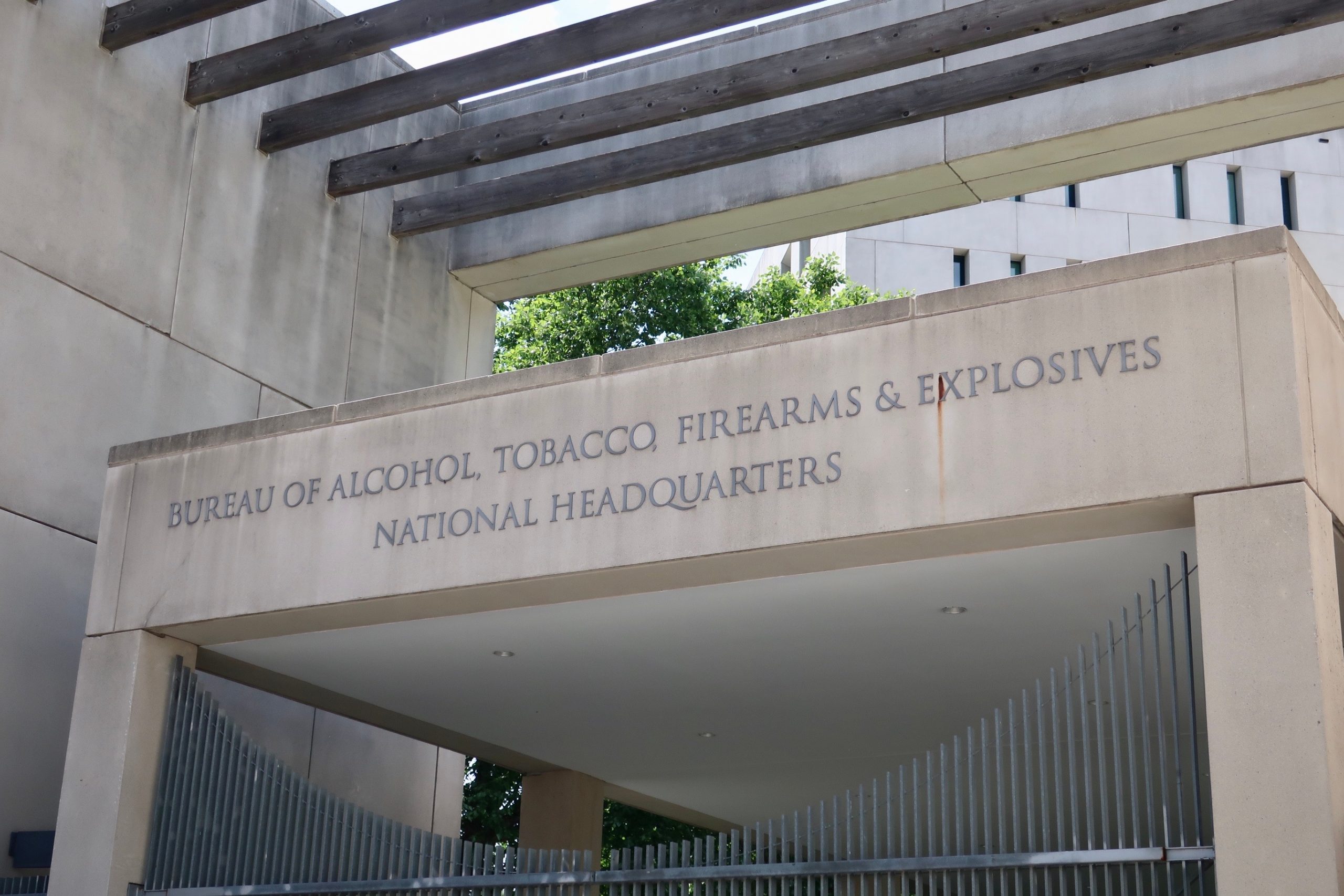Supreme Court temporarily reinstates rule regulating ghost guns


The Supreme Court on Tuesday allowed the Biden administration to temporarily reinstate a rule by the Bureau of Alcohol, Tobacco, Firearms, and Explosives regulating ghost guns while a challenge to the rule continues in a federal appeals court. In June, a federal judge in Fort Worth, Texas, had barred the ATF from enforcing the rule anywhere in the United States. Urging the justices to intervene, U.S. Solicitor General Elizabeth Prelogar had told the justices that the order by U.S. District Judge Reed OConnor was irreparably harming the public and the government by reopening the floodgates to the tide of untraceable ghost guns flowing into our Nations communities.
The vote was 5-4, with Justices Clarence Thomas, Samuel Alito, Neil Gorsuch, and Brett Kavanaugh indicating that they would have denied the governments request and allowed the ban on enforcement of the rule to continue. The ATF issued the rule at the center of the dispute in 2022 to make clear that federal laws governing the sale of firearms requiring, for example, background checks for purchases and imposing recordkeeping obligations apply to ghost guns, firearms without serial numbers that virtually anyone can assemble with parts that they purchase, often in a kit.
Manufacturers and sellers of ghost gun kits and parts went to court to challenge the rule, arguing that its application to ghost guns was inconsistent with federal firearms laws. On June 30, OConnor vacated the rule nationwide. The 5th Circuit agreed to fast-track the governments appeal but rejected the governments plea to put OConnors ruling on hold, although it did limit his ruling to the parts of the rule that the manufacturers and sellers had specifically challenged. Oral argument in the 5th Circuit is scheduled for Sept. 7.
The Biden administration came to the Supreme Court on July 27, asking the justices to intervene. Prelogar told the justices that while OConnors order remains in effect and ghost guns can be sold without being subject to federal firearms laws, the damage is done; law-enforcement officials will not be able to trace those ghost guns in the future. By contrast, she reasoned, allowing ATF to enforce the rule while the appeal continues will not harm the manufacturers of ghost gun kits and parts, who will simply have to comply with the same straightforward and inexpensive administrative requirements that apply to commercial sales of all other firearms.
At the very least, Prelogar continued, OConnor should not have issued a universal injunction barring enforcement of the regulation anywhere in the United States. Universal injunctions, she emphasized, create a range of problems. Because just one judge can invalidate an agencys actions, she observed, it encourages plaintiffs to seek out judges who might give them a favorable ruling. And it operates asymmetrically, she added: Only one set of challengers needs to prevail to block the agency action nationwide, while the government needs to defeat all of the challengers. The ability to issue a universal injunction also effectively gives a single district judge veto power over any other pending challenges of which, in the case of the ghost-guns rule, there are several.
The District of Columbia, joined by 20 states with Democratic attorneys general filed a brief supporting the Biden administrations request to freeze OConnors order. They described the 2022 rule as a vital backstop to states efforts to stem the flow of ghost guns and combat the violence engendered by prohibited persons possessing untraceable weapons.
Calling the phrase ghost gun a propaganda term that appears nowhere in federal law, the challengers urged the justices to leave OConnors order in place. The Biden administration had not shown, they wrote, that firearms made by individuals for their own personal use are fueling an increase in crime, much less that the justices needed to intervene on an emergency basis. But in any event, the challengers continued, ATF went too far when it issued the rule, which regulate[s] items that are not firearms and which Congress never envisioned it regulating.
The challengers defended OConnors decision to vacate the rule nationwide. They dismissed the Biden administrations arguments against universal injunctions as policy concerns that cannot supplant Congresss decision to allow courts to vacate actions by agencies that exceed their authority. Congress created a cause of action for private litigants under the federal law governing administrative agencies, they emphasized, Congress made the judgment that on balance vacatur should be allowed, and Congress remains free to revisit that judgment at any time. At the very least, the challengers insisted, the justices should let the appellate process play out, particularly when the court of appeals has scheduled oral argument for early September.
In Tuesdays order, the justices granted the governments request to put OConnors decision on hold until its appeal in the 5th Circuit and, if necessary, to the Supreme Court, is resolved.
Four members of the courts conservative bloc Thomas, Alito, Gorsuch, and Kavanaugh indicated that they would have rejected the governments request and allowed OConnors order to remain in place. They did not explain the reasons for their votes.
This article was originally published at Howe on the Court.
Posted in Emergency appeals and applications, Featured
Cases: Bondi v. VanDerStok, Garland v. Vanderstok
